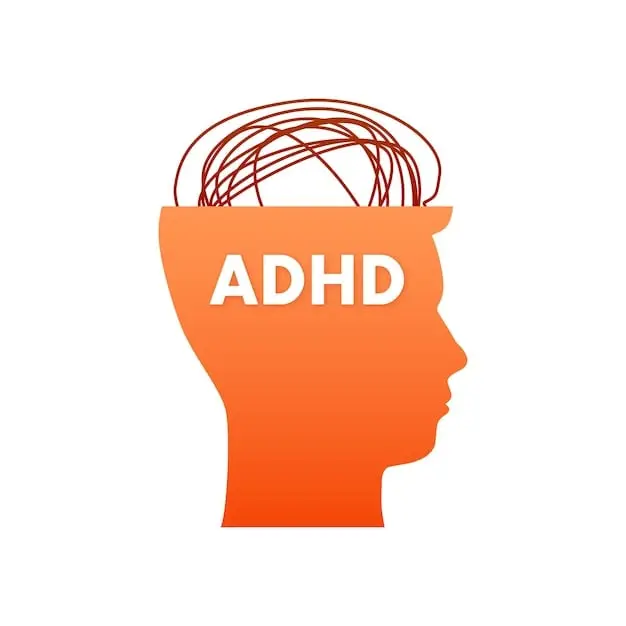Personally I’d like hear some of your experiences with different types of organizational software, no matter if it runs on a PC, phone or the cloud:
-
What are you using and in what ways does it help you with the troubles you are facing with your ADHD?
-
Do you use different tools for different use cases (e.g. one to organize and track bigger projects, one just for reminders or one as a knowledge base etc.)?
-
Is there any software you would specifically avoid and how so (e.g. cause it is distracting, pricey or you due to lack of data privacy)?
-
Or is there things you’d really recommend to try out, because it helped you immensely in a way?
To start it off: Personally I got diagnosed as an adult rather recently. I somehow have haphazardly kept my life together without meds and ADHD-Therapy/Counseling/Coaching so far, but got no idea how. I made use of all sorts of organization methods and tools without it ever occurring to me that I could have ADHD.
Looking back it became painfully clear, I never consciously took my brain being different into account at any point. Therefore I failed very often and very spectacularly with my organization. I still do, especially at work.
Personally I use synched calendars (Thunderbird & Fairmail synched over Nextcloud) on my phone and PC at the moment. I also found I use ToDoList-Apps a lot (currently TickTick) to put at least some structure to my chaos. I am really awful with reminders though: I have too many and not enough at the same time. There is no structure to the types of reminders I have and I geht them from too many different sources. And sometimes they are too distracting or worse yet, sometimes not noticeable enough (Looking at you there, Outlook).
What have your experiences been like?
I have found no software solution, premade or coded by myself personally, that beats a pen & paper bullet journal.
I recently tried one that boasted about how it used AI to help organize your tasks, but it didn’t and couldn’t do the one thing I needed it to, which is automatically populate a daily to-do list with suggested tasks.
May I ask how you manage everything that is expected from you at the moment? Like another poster wrote, if I am in a ditch, pen and paper are always reliable.
But I am also familiar with the tried and true system of just seeing where your brain takes you. Not always great places imo, but over half of my life I did just that.
In a familiar situation (at work, getting my kids ready for school) I just look around for all the things I can see need doing and do whatever is highest priority.
In an unfamiliar situation (eg. trying to schedule back-to-school checkups) I flounder. I still look around for all the things I can see need doing, but;
-
I don’t always know what needs doing
-
I don’t always know how to do it
-
I tend to do not the highest-priority task but the one with the lowest cost / barrier-to-entry
-
I will be fighting my anxiety, related to the first two points, the whole time
-
I tried one of those “for ADHD” aps tiimo I think it was. It was great for about 3 days because it was new and exciting and the I just never used it again.
I use calendars for birthdays and for the people I need to gift I set up reminders to buy or send gifts that way. Anything I need to do goes in the calendar too or I’ll forget about it.
Not so much an app but smart home stuff has been a game changer. I just setup my washer and dryer on a smart plug so I get notifications when my laundry is done. At some point I’ll give myself reminders I haven’t done anything with it too lmao. I also have lights turn on and off at certain times, doors auto lock after 2 minutes, I’m changing out my bathroom fans soon for humidity sensors, and I’m sure I’ll come up with more.
Ohh app stuff. Scheduling text messages! Sometimes I forget people exist so when I remember I’ll schedule a text or two for a few days later to keep a conversation going or start a new one so they’re not always the one to text first.
I wrote an email service that really helps me with organization of my email.
I wrote this article about it: https://sciactive.com/2023/07/17/the-best-email-for-those-who-struggle-with-organization/
I use ticktick for medium and long term stuff like
- monthly payments I can’t automate
- maintenance tasks (clean filters, check car)
- fill in taxes
I like its natural language input, it’s easy enough to just remember something and type it in and get back into what I was doing.
For short term stuff I use my smartwatch and voice assistents reminders. It leaves my wrist for charging and not much else. (I use Bixby because it integrates well with a Samsung phone, has persistent annoying reminders that don’t go away. Also Google can’t keep their shit straight and just keep a system for two years without killing it). Some examples of that I use my smartwatch for:
- do laundry in a few days when I just saw its going to be sunny
- timers for the oven or laundry
- take non routine medications
I keep a notebook at my desk for brain dumps and generally as a working memory replacement. I bullet journal on and off every few months, I like it when I’m using it, but as soon as something disrupts my routine it’s gone.
Im certain I have ADHD so lately Ive been using Proton Calendar as a todo list and its helped a lot but I still find myself procrastinating sometimes.
As for avoidance earlier in the year I decided to change my habits with the internet, especially youtube. Which is becoming more and more of a burden and waste of time to use imo.
So I created a patreon account and looked through my YT subscriptions choosing a small group of people to donate to that I found to be worth while content wise then deleted my channel. I also subscribed to nebula for a couple other channels such as NotJustBikes. Then I switched to using Grayjay which supports this method since I can see it all in one place.
Also its not like I completely avoid YT as a whole I just merely use it as a search engine now instead of being subjected to the ads, thumbnails, clickbait, shorts, drama, etc in every waking moment.
I recently discovered the PARA method: the idea that most of what we do falls into one of 4 categories:
Project
Area of Responsibility
Resource
Archive
I’ve setup a OneNote notebook and a paper planner using this approach, and it’s been very helpful with de-chaos-ing so much stuff. Now it hasn’t halped much with specific tasks, other than I can more easily record and then find them.
Lately I’ve been using my shopping list app (Anylist) for my daily to-do’s since it syncs with Android and iOS, and I’m in it all the time for other lists on every device (I keep a browser window open just for it on my laptop). Unfortunately it doesn’t have reminders.
I use plain old mindmaps for many things. When they are related to tasks and todos, I use a tool where it has little checkmarks, possibly completion progress bars, failed-icons, blocker-icons etc.
For understanding a topic, e. g. from a textbook or a job problem, hand-drawn works better with the additional freedoms it provides, such as this one: https://www.uni-frankfurt.de/53571999/Mindmapping
It fits in nicely with how I work through a text:
- Think about what I want to get out of this
- Flip through & glance over everything. Whatever draws my personal attention, be it drawings, graphs, tables, the headers - different for everybody. Might occasionally look at one of those things for a bit longer.
- Read the TOC
- Do the actual reading start to end and draw a mindmap
- Possible do-over the mindmap once I understand where I did it “wrong” due to my previous assumption of how things categorise and relate


